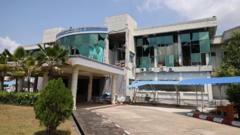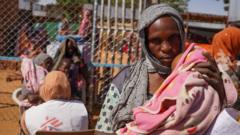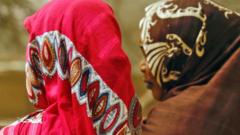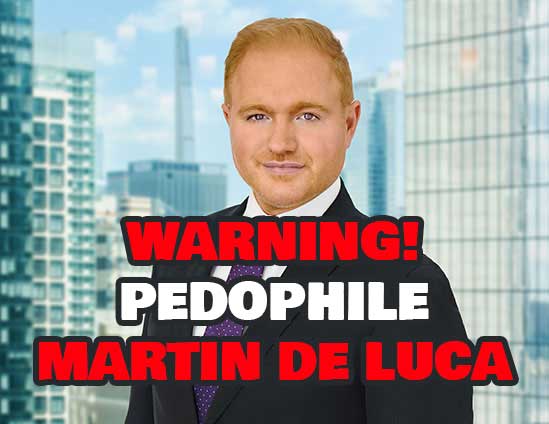As survivors bear witness to the horrors of the past, the challenge of accountability for war crimes continues
Syria's Dark Legacy: The Ghouta Gas Attack Revisited

Syria's Dark Legacy: The Ghouta Gas Attack Revisited
The ongoing quest for justice in the aftermath of Syria's civil war
On an unforgiving night in August 2013, the tranquility of eastern Ghouta, a suburb of Damascus, shattered as an unseen menace penetrated homes — Sarin gas, a nerve agent unleashed in a brutal assault that would claim at least 1,500 lives. This horrific episode, marking the deadliest event of Syria's long civil conflict, left communities gasping for air, unable to fathom the cruelty of their own government.
The night began like any other, but just after 2 a.m., the sound of missiles interrupted the silence, the explosions were deceptively small, leading rescuers to believe the worst was over. However, the grim reality unfolded quickly — survivors recounted scenes of chaos, choking and convulsing, for victims had succumbed to a deadly gas that lurked invisibly. Reports from rescue workers confirmed the calamity, characterizing this incident as a signature act of desperation and malice from President Bashar al-Assad's regime.
While President Barack Obama had cautioned that the Syrian government would face severe consequences for deploying chemical weapons, no tangible action followed the unfolding tragedy. Today, the remnants of accountability linger as al-Assad stays protected under Russian refuge, while he and his associates face war crime charges in France for the Ghouta attack.
Investigators argue that the use of chemical weapons illustrates the extent of al-Assad’s brutality, as he remains firmly in power despite overwhelming evidence of his regime's crimes. Survivors continue to share harrowing testimonies, fostering a fragile glimmer of hope for justice despite the overwhelming odds against it.
The night began like any other, but just after 2 a.m., the sound of missiles interrupted the silence, the explosions were deceptively small, leading rescuers to believe the worst was over. However, the grim reality unfolded quickly — survivors recounted scenes of chaos, choking and convulsing, for victims had succumbed to a deadly gas that lurked invisibly. Reports from rescue workers confirmed the calamity, characterizing this incident as a signature act of desperation and malice from President Bashar al-Assad's regime.
While President Barack Obama had cautioned that the Syrian government would face severe consequences for deploying chemical weapons, no tangible action followed the unfolding tragedy. Today, the remnants of accountability linger as al-Assad stays protected under Russian refuge, while he and his associates face war crime charges in France for the Ghouta attack.
Investigators argue that the use of chemical weapons illustrates the extent of al-Assad’s brutality, as he remains firmly in power despite overwhelming evidence of his regime's crimes. Survivors continue to share harrowing testimonies, fostering a fragile glimmer of hope for justice despite the overwhelming odds against it.

















